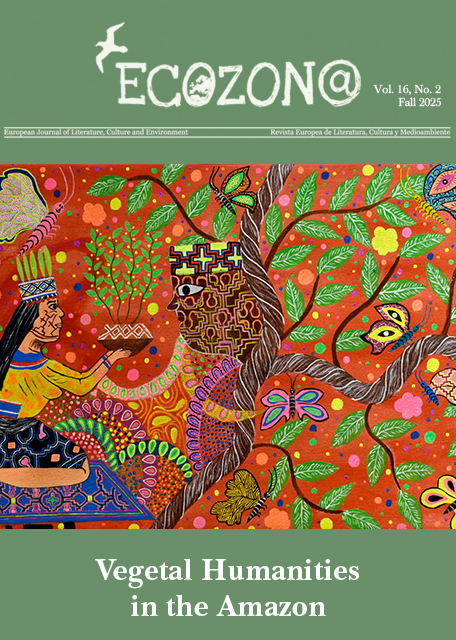<b>La torpeza de Epitemeo. La discusión entre intervencionismo y <i>laissez-faire</i> a la luz del mito prometeico</b> // Epimetheus' Clumsiness. The Discussion between interventionism and <i>laissez-fairez</i> in the light of the Promethean myth
DOI:
https://doi.org/10.37536/ECOZONA.2018.9.2.2355Parole chiave:
Prometeo, Epimeteo, animales salvajes, intervencionismo, laissez-faire // Prometheus, Epimetheus, wild animals, interventionism, laissez-faireAbstract
Resumen
El presente trabajo tiene como fin relanzar y repensar la discusión entre los defensores del intervencionismo y los defensores del no-intervencionismo partiendo del análisis del mito griego de Prometeo y Epimeteo que Platón recoge en el Protágoras. En dicho mito se dan dos visiones muy dispares de lo humano; en la primera, el humano es concebido como un animal frágil, y, en la segunda, como un ser dotado de cultura, alejado del resto de animales y cercano a la divinidad. Si bien el mito tiene su origen en la Antigüedad, esas dos caracterizaciones siguen vigentes en la discusión planteada, ya que los defensores de la no-intervención creen que el humano es frágil ante la naturaleza y no tiene las herramientas necesarias para intervenir en ella, y al contrario, los defensores de la intervención creen que el humano, al poseer cultura y ser una especie superior, puede y debe interferir en las relaciones que se dan en el mundo salvaje en interés de los animales y el ecosistema.
Abstract
The aim of this paper is to analyze and rethink the traditional opposition between animalism and environmentalism taking into account the myth of Prometheus and Epimetheus that Plato tells in the Protagoras. According to the myth, a human can be conceived in two different ways: like a fragile animal or like an animal close to divinity. Despite the antiquity of the myth, we can perceive that these two visions of the human being are present in the discussion that we are trying to explain. In fact, the interventionists think that human beings have culture and for that reason they have to intervene in the relations between animals and environment. On the contrary, the advocates of non-intervention, either good or bad, think that human beings are equal to the other animals and for that reason they must not impose their wishes, and not only that, they also think that they have not enough intelligence to manipulate nature for the sake of animals nor of the ecosystem.
Downloads
##submission.downloads##
Pubblicato
Fascicolo
Sezione
Licenza
Authors who publish with this journal agree to the following terms:
a) Authors retain copyright and grant the journal right of first publication with the work simultaneously licensed under a Creative Commons Attribution License that allows others to share the work with an acknowledgement of the work's authorship and initial publication in this journal (CC BY-NC for articles and CC BY-NC-ND for creative work, unless author requests otherwise.
b) Authors are able to enter into separate, additional contractual arrangements for the non-exclusive distribution of the journal's published version of the work (e.g., post it to an institutional repository or publish it in a book), with an acknowledgement of its initial publication in this journal.
c) Authors are permitted and encouraged to post their work online (e.g., in institutional repositories or on their website) prior to and during the submission process, as it can lead to productive exchanges, as well as earlier and greater citation of published work (See The Effect of Open Access).










